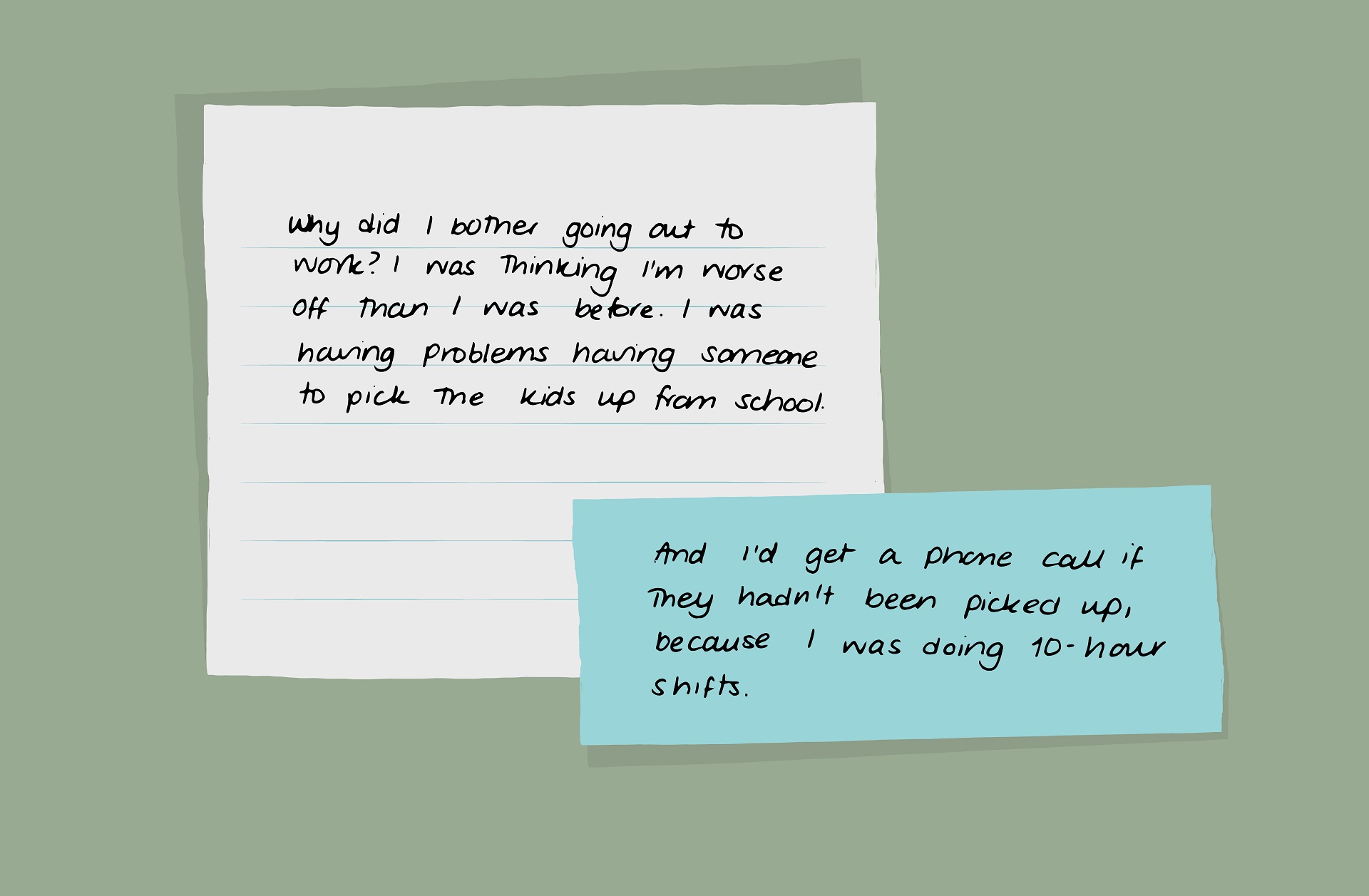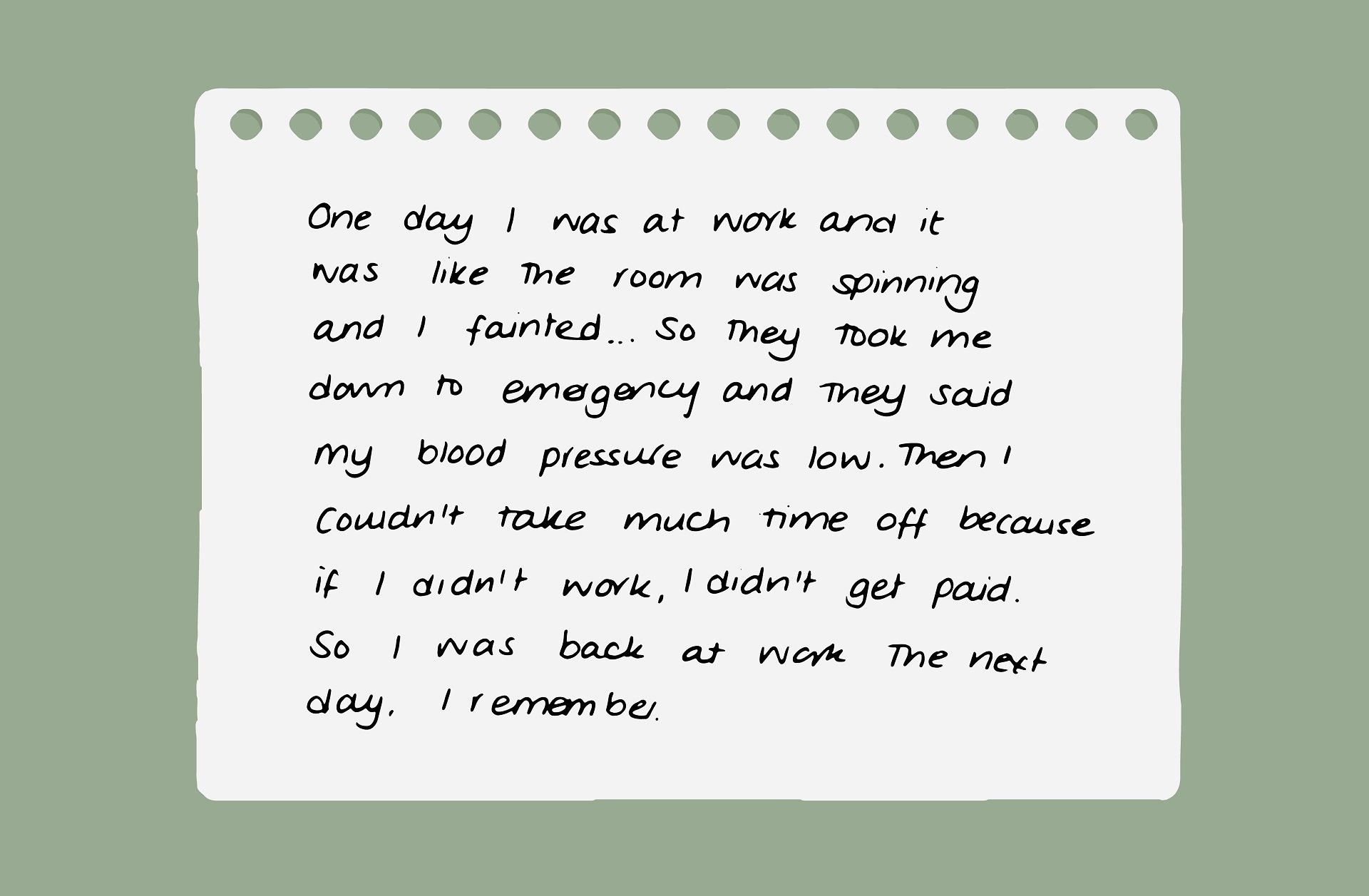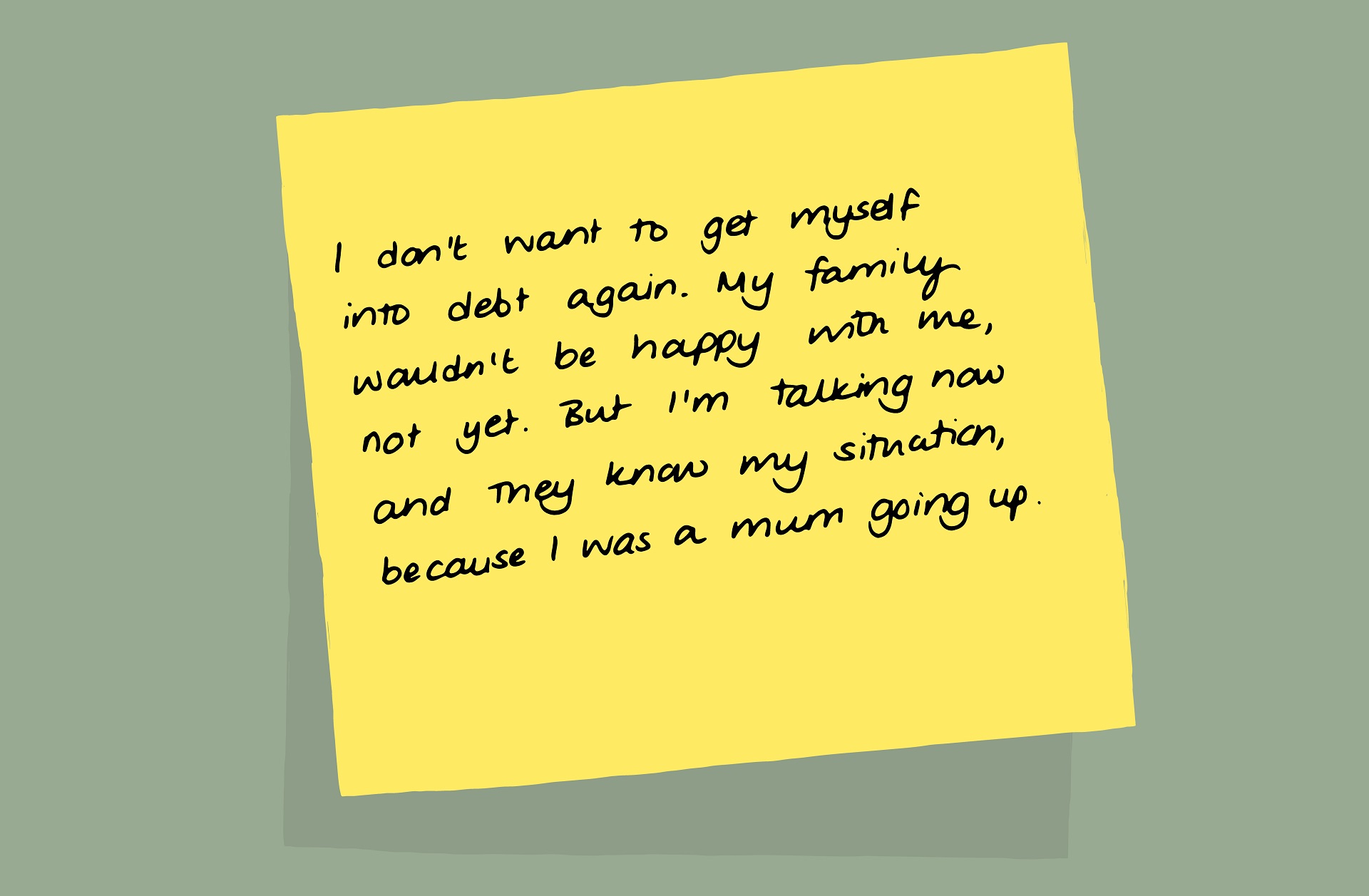Andrea’s story
Andrea is a 44-year-old and originally from Latin America. Her housing conditions were extremely bad, and they made her feel sick. Though the damp in her house made her asthma worse, better housing was unaffordable to her.
Financial foundations for adult health
Talking about work and health
People living with long-term conditions often struggle financially because of the ways their health impacts their finances, and their finances impact their health. Because of this, every person with long-term conditions should be assessed for their financial vulnerability.
Shannon, a participant in the London Financial Diaries, is financially vulnerable as defined by the Financial Conduct Authority (FCA) because of her long-term health conditions and lack of financial resilience.
Shannon’s health conditions strongly impact her ability to find employment and housing. If better supportive conditions were in place, however, some of her struggles could be mitigated.
Shannon is a 55-year-old single mother with four teenagers. She is registered as disabled with knee, shoulder, neck and spine injuries, schizophrenia, and other mental health conditions.
Collectively, her conditions present substantial barriers to Shannon being able to access formal employment. While she does receive means-tested benefits, she is lacking disability and sickness benefits, despite her conditions.
Shannon is very conscious that, if she were offered the opportunity to work, it would require exceptional flexibility from employers to accommodate her health conditions and absenteeism related to her conditions and many medical appointments.
While Shannon worked several low-paid jobs on and off, the lack of support with affordable and reliable childcare became a considerable hurdle for working a consistent schedule. After searching a while, she did eventually get a job as a security guard at a hospital, where she worked 10-hour shifts.
She appreciated the income but often questioned whether the strain the long hours and constant childcare juggle placed on her was worth it.

As a single parent of four children, Shannon felt she could never get ahead of things. She constantly worried about the bills and repaying loans. Shannon was working at the time she was pregnant with her fourth child, but her benefits were cut off as a result of her starting the job.
Because there was no transition period from receiving to no longer receiving benefits, she was left in a lurch without any income for a whole month. This could have been resolved if there had been a slow reduction in benefits over two to three final payments.
Because of the unexpected reduction in benefits and the waiting period before receiving her first pay check from the hospital, Shannon couldn’t pay her rent, Council Tax and other bills, and had to borrow money to commute to work.
Her precarious working conditions at the hospital negatively impacted her health conditions, especially when she couldn’t take paid time off work when she needed it. These frequent situations became mentally and financially taxing for Shannon.

Unfortunately, job insecurity often prevents people from taking time to recover after a health shock or trauma. Shannon was working at the hospital on switchboard controls when the 7/7 London bombings happened.
She described how traumatic that day had been for her and how she needed time to regain her mental health. Not only is there immense pressure on frontline essential workers, but the precarity of these types of jobs also has huge health impacts, which creates an extra burden on those already managing multiple long-term health conditions.

When Shannon was unable to cover her family’s living expenses she borrowed money from her aunt and relied on her 16-year-old son to get a job and help out. She managed to transition from working in security to working as a receptionist at the same hospital. While her work hours were more reasonable, her pay was not.
In her security job she was paid weekly, but as a receptionist she received a pay check once a month. Because the period between pay checks was so long, Shannon often skipped meals to save on groceries.
When that was no longer feasible, she borrowed money from family and FCA-regulated lenders to get by between pay days and cope with emergency expenditures.

Shannon struggled with her mental health and constantly worried about being evicted. One Housing Officer threatened her with eviction and took her to court three times.
This pressure made her anxiety levels go up, which led her to start taking drugs to cope with the fear and stress. Eventually, the drugs caused a brain haemorrhage, so Shannon became determined to stop using. Despite taking drugs during the time she was employed at the hospital, she never missed work because of them.
Shannon told us that her worry over her finances made her long-term health conditions worse, but more recently she has been getting better at talking more about her struggles rather than bottling everything up inside.
Having a support system greatly improved Shannon’s mental and financial wellbeing. She explained that when she was diagnosed with psychosis her family really gathered around her and started helping her sort out her bills and pay off debts. Receiving this support made her feel better mentally, but also gave her a sense of belonging.

Shannon’s story shows us that there are steps that that organisations she interacted can take to protect the health and finances of people like her:
Financial foundations for adult health
Andrea is a 44-year-old and originally from Latin America. Her housing conditions were extremely bad, and they made her feel sick. Though the damp in her house made her asthma worse, better housing was unaffordable to her.
Financial foundations for adult health
Daliya is a 27-year-old mother with multiple long-term health conditions living in South London. Her income fluctuated from month to month and her financial struggles had a huge impact on her mental health.
Financial foundations for adult health
Luisa is a 28-year-old mother of two young children, aged one and four. She lives with depression and anxiety. When Luisa's finances caused her depression to worsen, this manifested itself through physical symptoms.